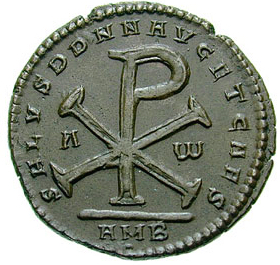Oh look! A deer!
Tom Holland's DOMINION: HOW THE CHRISTIAN REVOLUTION REMADE THE WORLD is reviewed
here by Phil Jenkins:
In Holland’s view, the teachings of Jesus constituted an ethical
revolution that would gradually transform human consciousness, to the
extent that we today find it hard to imagine credible alternative
systems. ... Christianity mattered because it taught respect (or even veneration) for
the poor and the oppressed. That implied the historically unprecedented
exaltation of humility, forgiveness, and love.
A proper examination of the thesis would discuss the extent to which the antecedents of Jesus' teaching in Judaism as well as Jesus' personal historical circumstances do or do not explain it, but you won't get that from Phil Jenkins.
The ethical revolution of the good news preached to the poor (Matthew 11:5, Luke 4:18, Luke 7:22) is itself part of a long backstory which gradually transformed Judaism as its society degenerated and came to manipulate and oppress its own people. The rise of the prophets as social critics cannot be understood apart from Israel's mistreatment of the poor. Jesus comes on the scene as a prophet himself at the end of this long period of cultural degeneration, the poor bastard child of parents who could not afford the required lamb offering for him (Leviticus 12:1ff.).
[T]hey brought him to Jerusalem, to present him to the Lord; (As it is written in the law of the Lord, Every male that openeth the womb shall be called holy to the Lord;)
And to offer a sacrifice according to that which is said in the law of the Lord, A pair of turtledoves, or two young pigeons.
-- Luke 2:22ff.
The cleansing of the Temple's "thieves" (Matthew 21, Mark 11, Luke 19), the warnings against wealth (Matthew 19, Mark 10, Luke 18), the favoritism for the have-nots (Matthew 5, Luke 6, Luke 14, Luke 16), the transvaluation of poverty as a good in the call to discipleship (Luke 14:33), and the woes pronounced against the haves (Luke 1, Luke 6, Luke 12, Matthew 23) cannot be understood apart from his personal experience, let alone from the cultural history.
The basis of culture is in the cult, and Jesus attacked it. Jesus is a revolutionary in that he found in the Temple cult the central means by which the poor were oppressed, but he was a religious, not a political, revolutionary, and specifically an eschatological revolutionary. That he expected apocalyptic judgment on this system by the Son of Man and his armies and its replacement with a heavenly Temple, a Jerusalem descending from above, shows this.
It is also what repulses interpreters, who would rather talk about, and make it about, anything else.



